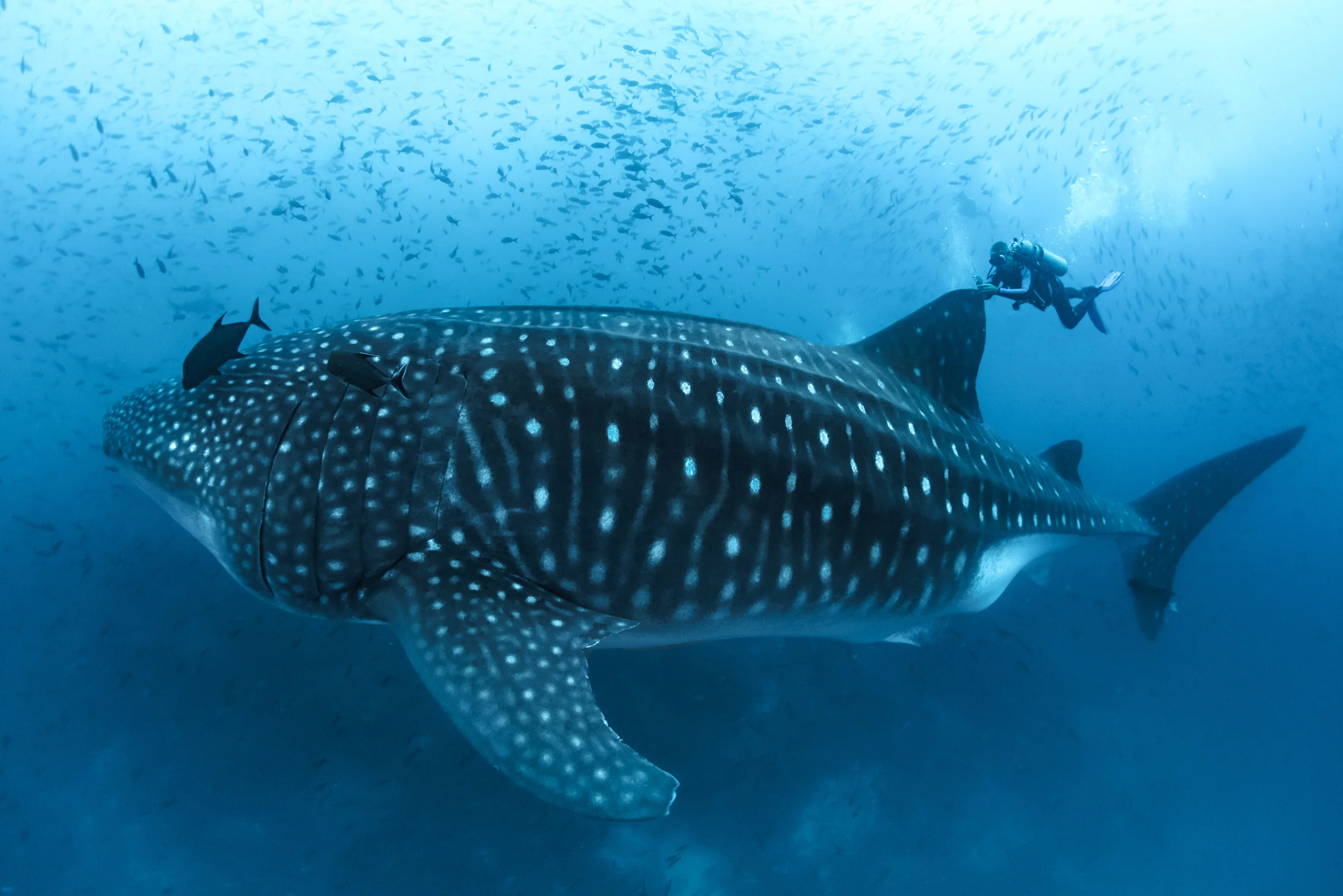Jeffrey Garriock | Canada | 2020
31 min | CC Available
The world's largest shark. The largest fish of any kind. Enormous, gentle, beautiful and ancient. These are just some descriptions of one of the ocean's greatest mysteries – the Whale Shark.
Very little is known about Whale Sharks, and in spite of their size, science has been unable to determine where they mate, where they give birth, or even how exactly they move around the world. All of these are critical details for their protection, because if greater efforts aren't undertaken to save the Whale Shark, this endangered species may be on its way to extinction.
Enter Jonathan Green. In 2011 he founded the Galapagos Whale Shark Project, a not-for profit that undertakes research to try and answer some of these crucial questions. Each year, he and a team of leading Whale Shark researchers travel to the northernmost point in the Galapagos Islands – Darwin. In just the right season, Darwin plays host to an aggregation of some of the largest Whale Sharks ever documented.
The animals here are almost all female, and rarely smaller than ten metres in length. More often, they're twelve metres or larger. They're not here to breed. They're not here to feed. So what is it that these sharks are doing here every year? And how can we find ways to keep them safe?
DIRECTORS BIO
Jeffrey Garriock
Jeffrey Garriock is a Toronto-based travel and documentary Director and Cinematographer. His fascination with the ocean dates back to age 15 when he was able to scuba dive for the first time. Jeff has made films for professional sports, worked with not-for-profit Photographers Without Borders, and shot in over 50 countries around the world. He has filmed everywhere from inside the Chernobyl Nuclear Power Plant to the Antarctic peninsula. Increasingly attracted to conservation stories, Jeff hopes to shine a light on situations that need our attention - even those that may seem quite far away from our regular lives.



